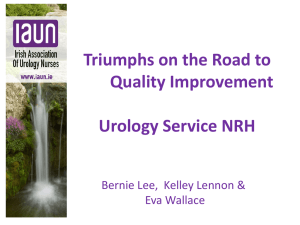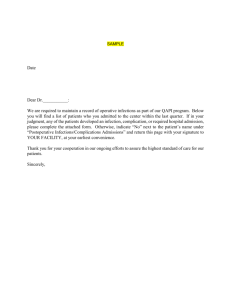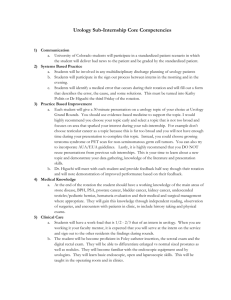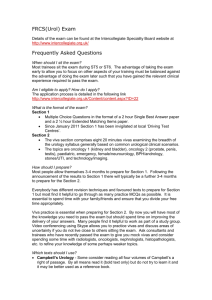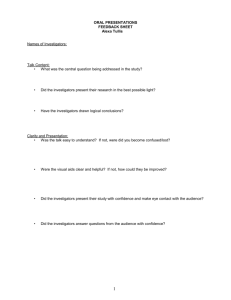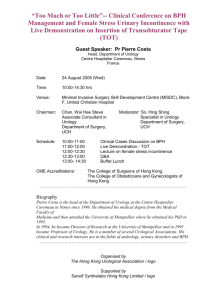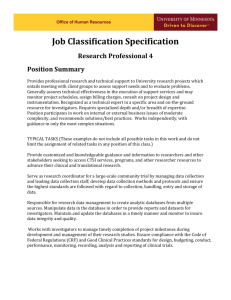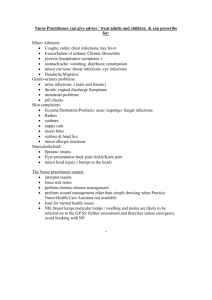Aims of study
advertisement
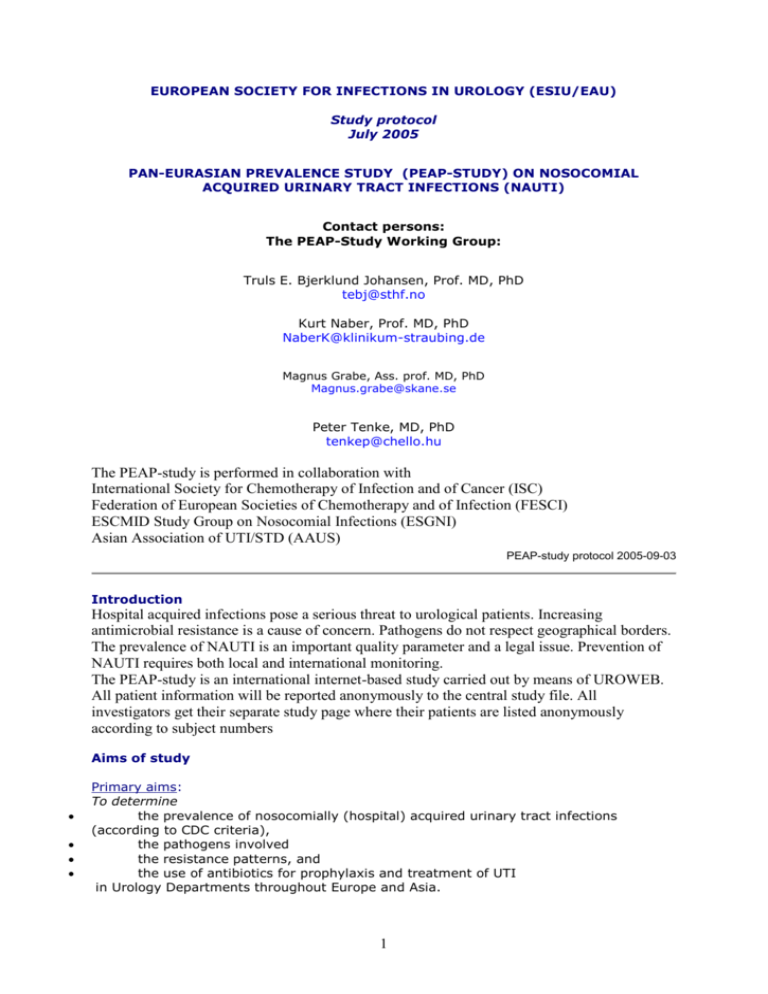
EUROPEAN SOCIETY FOR INFECTIONS IN UROLOGY (ESIU/EAU) Study protocol July 2005 PAN-EURASIAN PREVALENCE STUDY (PEAP-STUDY) ON NOSOCOMIAL ACQUIRED URINARY TRACT INFECTIONS (NAUTI) Contact persons: The PEAP-Study Working Group: Truls E. Bjerklund Johansen, Prof. MD, PhD tebj@sthf.no Kurt Naber, Prof. MD, PhD NaberK@klinikum-straubing.de Magnus Grabe, Ass. prof. MD, PhD Magnus.grabe@skane.se Peter Tenke, MD, PhD tenkep@chello.hu The PEAP-study is performed in collaboration with International Society for Chemotherapy of Infection and of Cancer (ISC) Federation of European Societies of Chemotherapy and of Infection (FESCI) ESCMID Study Group on Nosocomial Infections (ESGNI) Asian Association of UTI/STD (AAUS) PEAP-study protocol 2005-09-03 Introduction Hospital acquired infections pose a serious threat to urological patients. Increasing antimicrobial resistance is a cause of concern. Pathogens do not respect geographical borders. The prevalence of NAUTI is an important quality parameter and a legal issue. Prevention of NAUTI requires both local and international monitoring. The PEAP-study is an international internet-based study carried out by means of UROWEB. All patient information will be reported anonymously to the central study file. All investigators get their separate study page where their patients are listed anonymously according to subject numbers Aims of study Primary aims: To determine the prevalence of nosocomially (hospital) acquired urinary tract infections (according to CDC criteria), the pathogens involved the resistance patterns, and the use of antibiotics for prophylaxis and treatment of UTI in Urology Departments throughout Europe and Asia. 1 To provide scientific data on urinary tract infections for research studies. To provide important information on the quality of hospital health care. Secondary aims: To offer European and Asian Urology Departments: an instrument for quality control of NAUTI the chance to acquire ESIU/EAU Certificate for infection control Methods Study day The Study-day is one of the following days: Nov. 16, Nov. 23, Nov. 30. 2005. Each urology department chooses freely the day that fits best for them. Registration of investigators Study-information will be available on the UROWEB/section office/ESIU/scientific studies, or directly on www.uroweb.org/peap after Oct. (01 or 15), 2005. Investigators are supposed to register, and will be given hospital number and patient identification numbers through UROWEB. Completed forms are submitted to a study file on the same uroweb-site or by regular mail to the ESIU/EAU Central Office, P.O.Box 30016, NL-6803 AA Arnhem, The Netherlands, within Dec. 31, 2005. Parameters to be registered Two registration forms are to be filled in, A and B. Form A is the hospital registration form that gives information about the population of patients hospitalised in the Urology Departments on Study-day. Form B is to be filled in for each patient with NAUTI according to CDC criteria. Definitions of all relevant parameters are included in the PEAP-study application and are available by means of help buttons. The report forms for this year`s PEAP-Study will be updated on Oct. (01 or 15). Benefits Local investigators can read accumulated results from their own hospital and compare them to average results of other hospitals. The dataprogram will accumulate results for several years (as long as the study lasts) and offer (graphical) presentations of the development in incidence, resistance patterns etc. over time. Urology Departments that take part in the PEAP-study will be awarded the ESIU/EAU Certificate for infection control (See Form A, question V.). All investigators (one of each centre) will receive copies of presentations of study results and will be acknowledged in publications from the study. July22, 2005 On behalf of the ESIU-board Truls E. Bjerklund Johansen Kurt Naber Magnus Grabe Peter Tenke (PEAP-Study working group) 2
